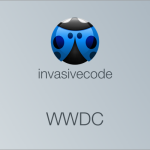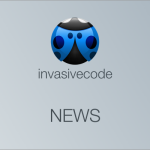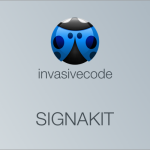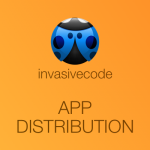A Story of Shazam, Siri & Spotify
Depending who you talk to, Apple’s December 11 purchase of London-based Shazam was either the smartest thing to happen to Siri and Apple Music – or the best excuse, ever, to start listening to SoundHound.
Apple shelled out a reported $400 million for the “name that tune” app, down from a 2015 valuation of $1 billion. The deep discount wasn’t Apple’s only advantage in the sale. They bought Shazam right out from under Snap Inc. and Spotify – companies that were showing interest in purchasing the app for themselves, and who have existing relationships with Shazam. Spotify is also Apple Music’s largest competitor.
So what does this purchase portend? Readers may recall that Apple began integrating Shazam’s song-identification technology into the Siri voice assistant back in 2014, with their rollout of iOS 8. So if not to get their hands on the platform, why else would they be interested? Some analysts suspect it’s to have exclusive control of the service, since other platforms have integrated Shazam into their own products (Snapchat, for example), and Apple might be looking to limit who else shares the technology. Others suggest that with companies like Snap showing interest in a Shazam buyout, the surest way for Apple to guarantee a continued relationship with the music identification app was if they bought it, outright. Since Apple relies on the technology to power Siri’s song identification capabilities, it’s unlikely they wanted to take any risks, were it sold to a third party.
It’s so far unclear what Apple has in mind. Shazam has been a key part of Spotify’s music discovery service, and that feature is one of the reasons Spotify generally wields a monthly 2:1 user acquisition rate over Apple Music. The increasing trend toward streaming versus purchasing has been a bane to both Shazam and Apple Music (it was Apple’s iTunes Store that popularized individual song-buying in the first place, which went hand-in-glove with their iPod devices, back in the day). But if Apple can use Shazam to create a more robust suggestion service for streaming, than they’re in better fighting shape to go up against Spotify.
The fact that Spotify is Apple Music’s most significant competition has some users worried about the future of Shazam’s integration into Spotify. Some predict that Apple will axe it completely, thus cutting Spotify off at the proverbial knees. Another worry is that Apple will do away with the stand-alone app completely, forcing curious users to ask Siri what’s playing, without being able to silently direct the query with their fingertips. Both scenarios seem possible – if a little extreme. Likewise, neither is perfect and both carry ramifications that could affect existing relationships with Apple as much as they might create new ones. In the event Apple guts Shazam from Spotify, remember that the music service is Apple’s biggest competition, but not their only competition. Most diehards seem prepared to pivot to Google’s SoundHound before ever agreeing to fall in with Apple Music. And Siri works best in quiet rooms, which immediately kills the functionality if someone needs to convince the voice assistant to name their newly discovered favorite tune in the middle of a crowded bar or pulsing nightclub.
Still others worry that Apple will remove the Shazam app from Android or get rid of its Android support. These outcomes are realistic as well, although SoundHound again becomes a very real wrench in those works. Apple engineering a less-than-enjoyable experience for Android users hardly guarantees that devoted Shazam fans would be lured to Apple via the app; it seems unlikely that frustrated customers would run right into the arms of the company that hijacked their experience. This is especially true when SoundHound is out there, ready and able to offer angry music lovers melodic salve for their digital wounds.
“Those who rule data will rule the entire world.” - Masayoshi Son
What seems to be almost universally assumed is that Apple purchased Shazam for access to their intellectual property and user data. Sure, the timing aligns with the delayed launch of HomePod, implying there’s some last-minute fiddling on the back-end. It certainly sets the stage for a major update to Siri in iOS 12 (it also suggests that Apple has stopped upgrading products in-house, in favor of almost exclusively relying on acquisitions to add functionality). But these little bells and whistles – much like the Spotify speculation – are small potatoes compared to what Apple could do with this new treasure trove of information.
For example, Kif Leswing of Business Insider, points to Shazam’s analytic control center, a “‘dashboard’ — for music industry professionals,” that collects data on what’s being Shazamed. “When someone identifies what a song is through Shazam, that’s a pretty strong signal that it’s catchy, or distinctive. ‘Our data has shown that we can typically predict 33 days in advance what’s going to be at the top of the Billboard Hot 100,’ a Shazam executive said in 2014.” This data broadens the breadth and depth of what Apple has been able to access from their existing platforms. It also, of course, includes mountains of data on Android users that has, heretofore, remained inaccessible to them.
And Now For Something Completely Different
But these are just the services we know about – and we don’t know what we don’t know. Just as Apple’s acquisition of PrimeSense was more about accessing the visual technology to create FaceID than it was about trying to turn AppleTV into an Xbox rival, maybe the Shazam acquisition is part of a larger strategy, using Shazam’s IP, to create an entirely new product.
So count on a few new bells and whistles from Apple Music, and prepare for Siri to get a juicy, new upgrade – these are simple and almost guaranteed. If you’re a Spotify die-hard or an Android user, you might soon have some tough choices about where to go to stream songs.
But we’ll have to wait and see what the real excitement will be. Apple has most likely found an entirely new way of using Shazam’s technology, and it probably won’t be making “Beat Shazam” an Apple TV exclusive.
The INVASIVECODE team








